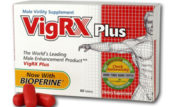IBS hurts. The discomfort. The noises and those runs to the bathroom. You can take some solace in knowing that you’re not alone. Estimates suggest that 15% of Americans suffer from IBS, with a whopping $21-$30 billion in IBS-related medical costs. IBS affects Americans like few other ailments. And people want relief.
What is the best IBS treatment? IBS is a bowel disorder, characterized by abdominal pain, discomfort, bloating and changing bowel movements. There’s no magic pill to cure IBS, but there are solutions. While some IBS treatments are shrouded in controversy, others are medically proven to reduce IBS symptoms in at least some patients. Let’s look at some common IBS treatments:
Acupuncture is an alternative medicine that treats patients with insertion and manipulation of needles throughout the body. Used for centuries in China, proponents of acupuncture claim that it relieves pain, prevents disease, boosts health and, among other things, reduces IBS. There’s little medical evidence to support this claim, although some studies show that acupuncture can relieve abdominal pain.
However, acupuncture may provide a psychological benefit to IBS patients. While not proven to reduce IBS, many patients claim they feel better after acupuncture, and at the very least, the idea that acupuncture can bring relief is enough, in some patients, to relieve IBS.
Herbology is another alternative IBS treatment based on ancient wisdom, and there’s evidence to show that it works. Peppermint, for example, is often used by herbalists to soothe the colon (which may cause some of the diarrhea and abdominal discomfort of IBS). In a 2007 Italian study, researchers found that 75% of participants had reduced IBS symptoms.
That said, peppermint can make heartburn worse. Experts suggest using enteric-coated peppermint capsules to treat IBS. Peppermint should not be used on its own, and only as part of a comprehensive herbal therapy prescribed by a certified herbalist. Run any herbal therapy past your doctor as well, especially if you’re taking other supplements or medications.
There’s further evidence to suggest that probiotics are an effective IBS treatment. These are living micro-organisms thought to benefit their host. Probiotic treatment introduces naturally occurring bacterium into the gut, to restore “good” bacteria levels.
Probiotic IBS treatment may sound unappetizing, but some doctors believe it’s one of the most effective solutions. Some experts believe intestinal disorders occur when there’s an imbalance of bacteria in the gastro-intestinal system. In recent studies, probiotic treatment significantly improved IBS symptoms, with no side effects. And as they’re natural organisms, required for good health, the body puts them to use.
Finally, hypnotherapy and psychological interventions have proven effective to reduce IBS symptoms. In two recent studies, IBS patients with a weekly one hour hypnotherapy session showed a 52% improvement in their physical IBS symptoms.
In another study, IBS patients underwent up to ten weekly sessions of Cognitive Behavioural Therapy (CBT). Each session covered an IBS-related topic, from coping strategies, to muscle relaxation and methods to reduce IBS-related anxiety. At the end of the study, 60% to 75% of patients had reduced IBS symptoms.
Remember, there’s no one-size-fits-all IBS treatment. What works for some may not work for others. What’s important is to note which treatments work for the highest percentage of IBS patients, recognize your own symptoms and to try an IBS treatment with an open mind, and always with an open communication with your doctor.
Alternative IBS treatment is often based on ancient wisdom, but the fact that it’s passed down through the ages speaks volumes about the ancients and their understanding of the body and mind. Not every IBS treatment is found in a pharmacy, and if it relieves your IBS symptoms, alternative IBS treatment is the one that works.
We protect your privacy, and we use cookies to optimize your experience. Continued use of the website means you accept our Cookie Policy and Privacy Policy.




